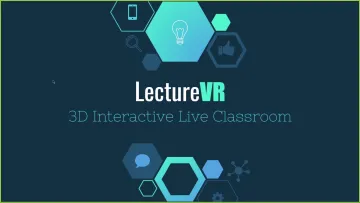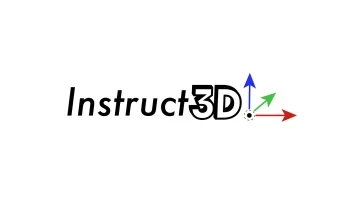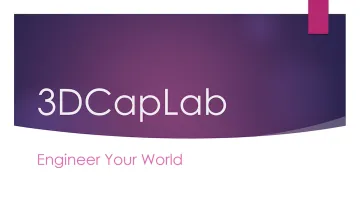Arizona FORGE and the College of Engineering are excited to announce the winners of the Engineer Your World Challenge.
The challenge, sponsored by the College of Engineering and run through December and January, tasked student teams with developing solutions to remote learning challenges through use of technology and 3D models.
“Our ‘new normal’ has changed the way we have to teach and learn. This challenge brought students across the UA campus together to solve an engineering-based problem,” - College of Engineering Dean David Hahn
The winning teams are:

First place: LectureVR
Yuchao Liao, Doctoral Electrical and Computer Engineering
Cassandra Limas, MBA
Lily Luo, Landscape Architect and MBA
Katie Slaughter, Mining Engineering and Geology
College students and professors feel that zoom meetings lack social connection, engagement, and a live study environment between professors and students. Zoom classes are not a practical solution for the future of online classes.
LectureVR will solve this problem by developing a VR classroom app. This is a multi-platform app that gives students and professors a real classroom atmosphere by using a VR head set with Unity software as the developing platform. A “real” classroom space is created where students can attend their lectures live, ask questions, and even talk to other students after their lecture is over. Professors are able to see their students’ avatars and receive live feedback. The product not only enhances and strengthens online learning through an interactive VR learning environment but sparks students’ drive and ambition that may have been weakened or lost when online classes began.

Second place: Instruct3D
Adrian Cottam, Doctoral Civil Engineering
Bryan Wong, Doctoral Audiology
While meeting platforms such as Zoom and Skype have taken huge leaps forward in virtual connection, there is a critical need for available “hands-on resources” that can be used in virtual settings.
Instruct3D solves this problem by creating a web-based, 3D model library/repository that is integrated with UArizona Library/Catalyst Studios and accessible to both teachers and students. The benefits of Instruct3D involve open-source to teachers and students within UArizona network as well as more “hands-on” virtual resources that can be integrated into the classroom.

Third place: 3DCapLab
Muhtasim Al-Farabi, Pre-Computer Science
Haseeb Irfan, Electrical and Computer Engineering
Adam Ledford, Pre-business
As society embraces the virtual learning environment in the wake of COVID-19, there has become an apparent need to enhance online communication. This format is insufficient, especially in the area of physical models and constructs. Objects such as anatomical models, circuits, and chemical reactions are all harder to view, and by extension, harder to understand.
3DCapLab seeks to solve this problem through developing a service that instructors can use to breach the limits of the virtual environment. The objective is to develop a tool that will use stereoscopic cameras to capture models in three dimensions. Students can view structures as if they were physical objects, granting greater clarity of a complex model and its parts. In a lab setting, this would mean that the instructor’s circuit, anatomical model, or other visual will appear real to students.

